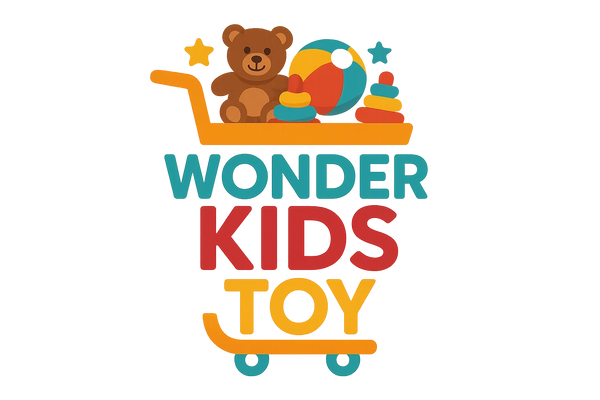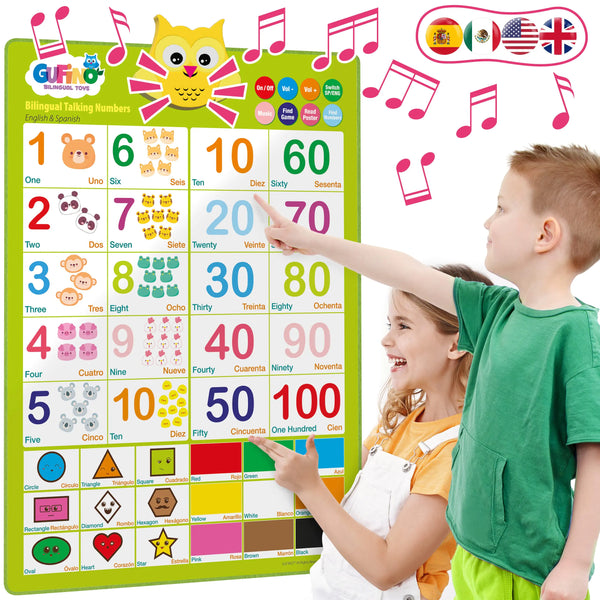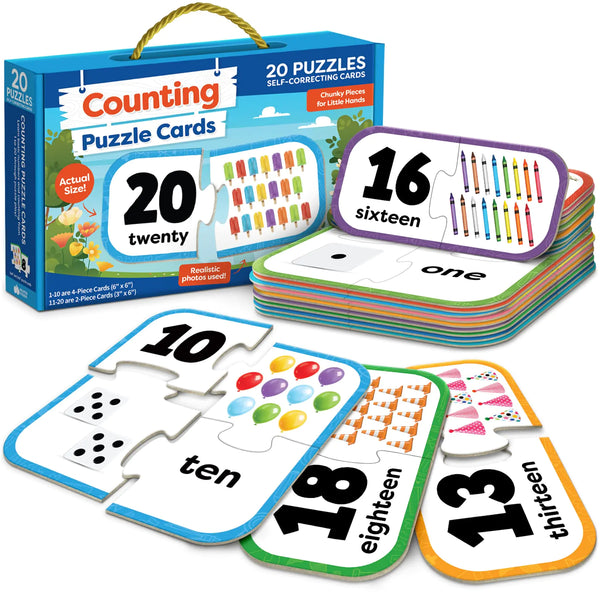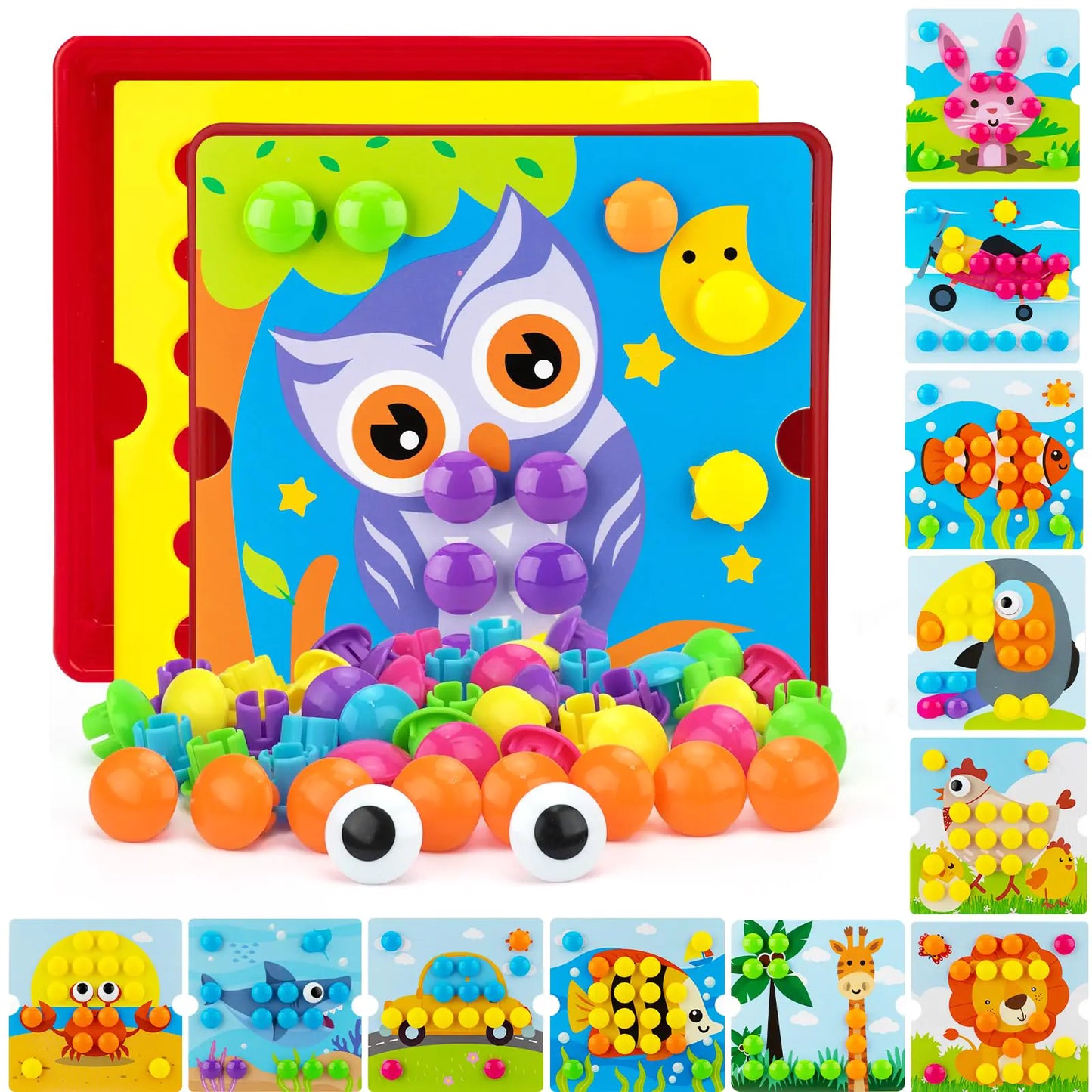In the quest to foster cognitive development and problem-solving skills in children, games play a pivotal role. This article explores a variety of games specifically designed to enhance these abilities in kids. From classic board games to innovative educational apps, these activities not only entertain but also educate, making learning an enjoyable experience for children.
Key Takeaways
- MentalUP Learning Games offer a digital platform for cognitive development.
- Monopoly Junior introduces basic economic concepts through play.
- Tangram Puzzles enhance spatial awareness and critical thinking.
- Board games encourage strategic thinking and patience.
- Puzzle Board Games and Educational Games develop a range of problem-solving skills.
1. MentalUP Learning Games

MentalUP Learning Games is a fantastic app that offers a plethora of problem-solving activities suitable for kids of all ages, from pre-K to high school. It's designed to test and expand core cognitive skills in a fun and engaging way. The app is tailored to nurture your child's creativity and imagination through a variety of scientifically designed games.
Here are some features that make MentalUP a great choice:
- Hundreds of visual games that keep learning colorful and engaging.
- An adaptive learning experience that personalizes the difficulty based on your child's progress.
- A safe environment with no ads and free from inappropriate content, making it suitable for use both indoors and outdoors.
MentalUP is not just about brain training; it also includes over 240 fitness exercises to keep your child physically active and engaged.
By incorporating MentalUP into your child's daily routine, you can provide them with a comprehensive educational tool that supports both their mental and physical development. It's easy to get started and can be accessed from any device, making it a convenient option for busy families. Give MentalUP a try and watch your child's problem-solving skills flourish!
2. Monopoly Junior

If you're on the hunt for a board game that doubles as a fun math problem-solving activity for your kids, look no further than Monopoly Junior. This game is a streamlined version of the classic Monopoly, tailored specifically for younger players. It's not just about rolling the dice and moving pieces; it's about making smart decisions, managing money, and planning ahead.
Benefits of Monopoly Junior
- Develops mathematical skills: Kids learn basic arithmetic through buying and selling properties.
- Enhances economic understanding: Introduces basic economic concepts in a fun and engaging way.
- Boosts critical thinking: Each move requires careful thought, helping children improve their decision-making skills.
- Promotes social skills: Playing with family or friends builds communication and negotiation skills.
Monopoly Junior is more than just a game; it's a tool that helps young minds grow and learn through play. It's perfect for a family game night that's both educational and enjoyable.
3. Tangram Puzzles

Tangram puzzles are not just fun; they're a fantastic way to enhance your child's problem-solving and spatial reasoning skills. Comprising 7 geometric shapes—5 triangles, a square, and a parallelogram—these puzzles can be arranged to form various silhouettes, from animals to people to objects. The beauty of tangrams lies in their simplicity and the depth of learning they provide.
To get started, have your child match tangram pieces to outlines on a puzzle sheet. This initial step helps them understand how shapes fit together. As they grow more confident, encourage them to create their own designs, fostering creativity alongside logical thinking.
Benefits of Tangram Puzzles
- Enhances spatial reasoning: Understanding how different shapes fit together improves this critical skill.
- Boosts problem-solving abilities: As children figure out how to form specific shapes, they develop key problem-solving skills.
- Promotes creativity: The open-ended nature of tangrams encourages children to imagine and create new shapes.
- Improves perseverance: Finding solutions in tangram puzzles can sometimes be challenging, which helps build perseverance.
Tangram puzzles come in various difficulty levels, making it easy to find the perfect set for your child's age and skill level. Start with simpler shapes and gradually introduce more complex challenges to keep them engaged and learning.
4. Board Games

Board games are not just about fun; they are a treasure trove of opportunities for kids to hone their problem-solving skills. Starting with classics like Checkers and Connect Four, these games require children to use logic, strategy, and deductive reasoning. The beauty of board games lies in their ability to scale in complexity as your child's skills improve. From games that need basic decision-making to those requiring advanced strategic planning, there's always a perfect match for every age and skill level.
Benefits of Board Games
- Social Skills: Engaging in board games teaches kids valuable social skills like taking turns and handling competition gracefully.
- Cognitive Development: Regular gameplay enhances cognitive abilities such as pattern recognition and logical thinking.
- Strategic Thinking: Kids learn to think ahead and plan their moves, which are essential skills both in and out of the classroom.
Playing board games as a family also offers a golden opportunity for quality time, where learning and fun go hand in hand. Each session provides a chance to learn from mistakes and grow, making your child a better thinker and strategist. It's not just about winning; it's about learning through trial and error, supported by family encouragement.
5. Puzzle Board Game

If you're looking for a way to boost your child's problem-solving skills while having fun, a puzzle board game might just be the perfect solution. These games are designed to challenge and engage young minds in a playful and educational environment. The benefits of puzzle board games are immense, ranging from improving cognitive skills to enhancing fine motor skills.
Here are some reasons why you should consider a puzzle board game for your child:
- Enhances problem-solving skills: Kids learn to think critically and strategize.
- Boosts spatial awareness: Understanding shapes, sizes, and geometry becomes fun and intuitive.
- Encourages teamwork: Many puzzle games require collaboration, promoting social skills.
- Adaptable difficulty levels: Most games have varying levels of difficulty, which can grow with your child's abilities.
Whether it's a rainy day or a family game night, puzzle board games are a fantastic way to keep your kids entertained and learning at the same time.
6. Educational Games

I've always believed that learning should be fun, and what better way to ensure that than through educational games? These games are not just about having a good time; they're about building essential skills in a way that feels more like play than work. Educational craft kits for kids enhance interactive learning, skill development, and social skills. They present challenges that require kids to use their problem-solving abilities, fostering critical thinking, logic, and decision-making in a relaxed, interactive environment.
Here’s a quick look at why these games are a hit:
- Foster critical thinking: Kids learn to think on their feet and solve problems as they play.
- Skill development: Games often involve math, language, or science tasks, enhancing academic skills.
- Social interaction: Many games require multiple players, which helps children learn to cooperate and resolve conflicts.
Remember, the goal is to make learning a seamless part of their playtime, ensuring they develop a love for learning early on.
7. Move an Object

Moving an object is a simple yet profoundly effective game to boost your child's problem-solving skills. It's all about creativity and flexibility. Here’s how it works: you set a challenge for your child to move an object from one place to another, but with a twist—there are specific rules on how they can move it. For instance, they might only be allowed to use their left hand, or they have to move it without touching it directly. This game is perfect for kids aged 5 and up and can be played solo or in groups.
- Enhances creativity and flexibility
- Improves motor skills
- Encourages strategic thinking and planning
This game is not just about moving things around; it's about thinking outside the box and finding new ways to overcome challenges.
Discover the art of movement in our 'Move an Object' section, where we delve into the fascinating mechanics of object manipulation. Whether you're a hobbyist or a professional, this guide provides insightful tips and techniques to enhance your skills. Don't miss out on our full range of educational content. Visit our website to explore more!
Wrapping It Up
As we've explored a variety of problem-solving games for kids, it's clear that these activities are not just fun but are crucial for developing critical thinking and creative skills. From board games that challenge strategic thinking to puzzles that enhance spatial awareness, each game offers a unique way to build intellectual and social abilities. Encourage your child to dive into these games; they're a playful and powerful tool to help them navigate the complexities of the world with confidence and curiosity. Happy gaming!
Frequently Asked Questions
What are the benefits of problem-solving games for kids?
Problem-solving games enhance critical thinking, logic, and decision-making skills. They also help children learn perseverance, goal-setting, and effective communication.
How do problem-solving games help in education?
These games prepare children for academic success by improving their ability to analyze, reason, and solve complex problems in a fun, interactive environment.
Can problem-solving games be played as a family?
Yes, many problem-solving games are designed for multiple players, providing an opportunity for family bonding and cooperative learning.
What age group benefits most from problem-solving games?
While problem-solving games are beneficial for all ages, they are particularly effective for children aged 5 to 12, as they help develop foundational skills early on.
Are there digital problem-solving games for kids?
Yes, there are many digital problem-solving games available that blend educational content with interactive gameplay to engage children effectively.
What skills besides problem-solving do these games develop?
These games also boost memory, attention, and spatial awareness. They can also improve language and math skills through structured challenges.
How often should kids play problem-solving games?
Regular engagement, such as a few times a week, is recommended to effectively build and reinforce problem-solving skills.
Where can I find problem-solving games for kids?
Problem-solving games can be found in app stores, educational websites, toy stores, and through online platforms that specialize in educational resources for children.


















